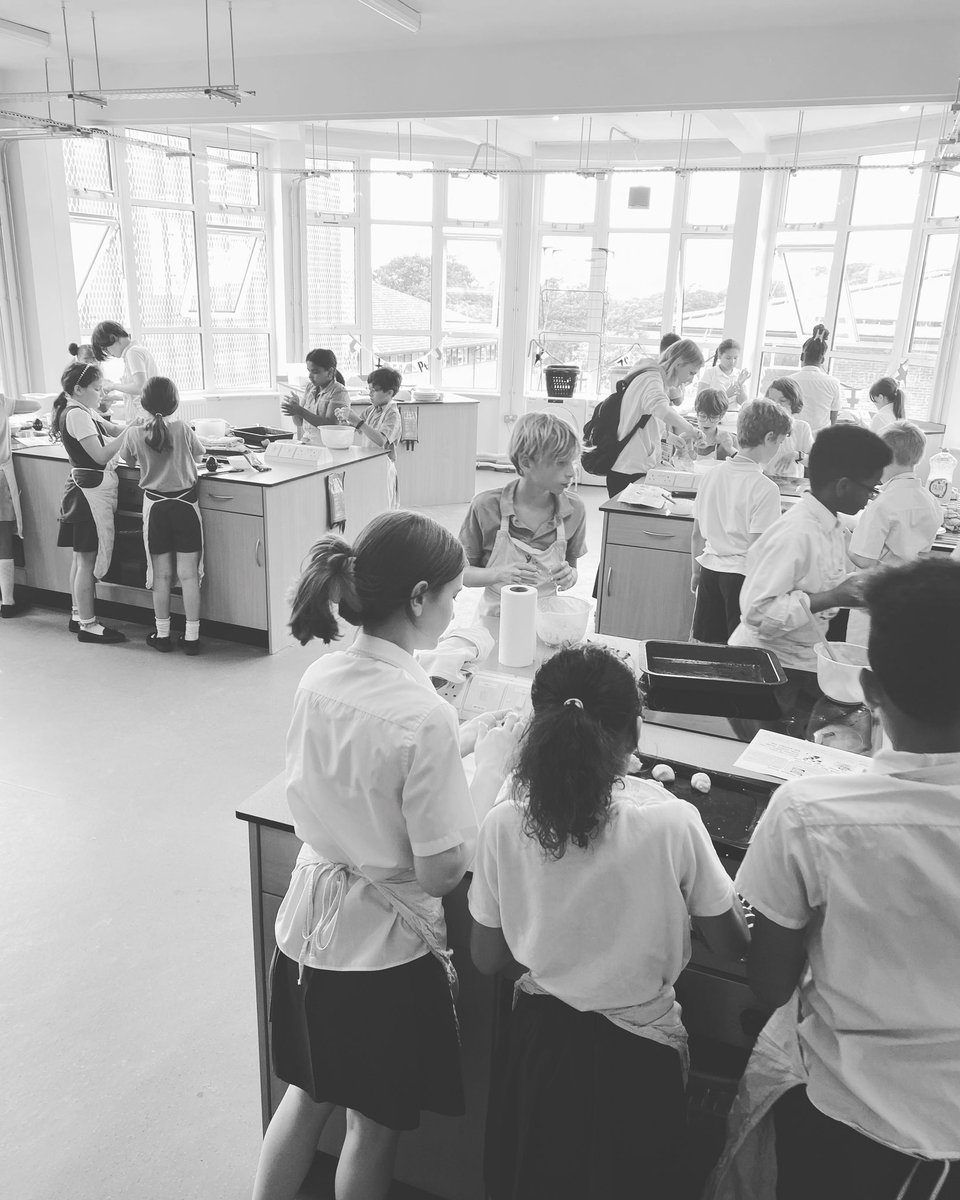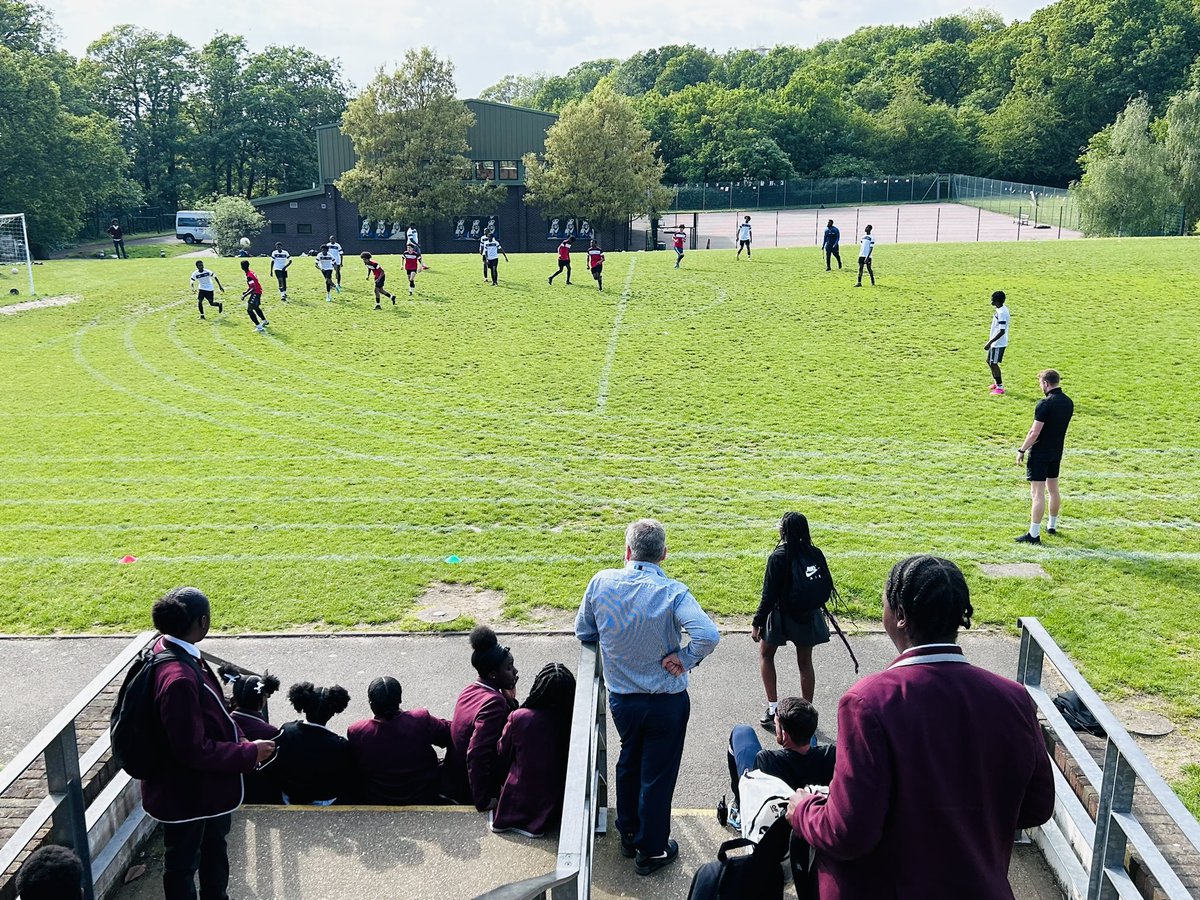Behaviour & Code of Conduct
Behaviour: Code of Conduct
Harris Academy Beulah Hill combines high expectations with warm, consistent support so all students can thrive. Our clear Code of Conduct, tiered rewards, targeted interventions and strong pastoral system create the calm, ambitious classrooms where teachers teach and students succeed.
What are our vision and values at Harris Academy Beulah Hill?
We expect all our students at HABH to be scholarly, compassionate, and aspirational. We expect all HABH pupils to act and behave in a way which allows students to learn. We challenge any behaviour that does not meet our high standards so that lessons are not disrupted.
Running directly alongside this, we have a culture of positive recognition at our Academy. Our staff have worked with students to create a rewards system which they find motivational and aspires them to achieve their potential. Our pastoral team also work diligently with our students and their families to establish positive relationships, which contributes hugely to their child's ongoing success.
How do we ensure that there is excellent behaviour at our Academy?
Students follow our Code of Conduct which is based on four clear rules of Giving 100%, Being Respectful, Being Responsive and Being Ready. However, at HABH, in addition to showing students what this good behaviour looks like, we also aim to teach them why this behaviour is beneficial to them and others around them. This cannot be done through a one-off assembly, but needs systematic and explicit teaching, with a concerted effort from all our staff. Tutors and teachers refer to our fortnightly Character Focus within their lessons. This focus is always linked to our core values of being scholarly, compassionate, and aspirational, so that fantastic behaviour is part and parcel of who we are and integral to our Academy.
How Behaviour Is Taught and Reinforced
- Explicit Character Teaching: Tutors and teachers link fortnightly Character Focus topics to lessons, so students learn why good habits matter, not just what they are.
- Classroom Routines: Lessons use a consistent set of routines that support consistency within lessons (greeting at the door, ‘Do Now’ starters building on prior knowledge, taught content through modelling and questioning, checkpoints checking understanding, silent independent practice and disciplined dismissals). This ensures behaviour expectations are predictable and learning time is maximised.
- Restorative Conversations: Short, scripted restorative dialogues repair relationships, teach social skills, and convert incidents into learning moments.
- Targeted Skills Work: Small-group or 1-to-1 sessions teach organisation, emotion regulation, and study skills for students who struggle to meet expectations; progress is tracked and shared with families.
- Early Intervention: Pastoral screens and data flags identify patterns (attendance, punctuality, negative events) and trigger a rapid response meeting with tutor, parent, and pastoral lead to codesign a plan.

Sanctions and Supportive Responses
- Graduated Detention Structure from short classroom corrections up to leadership detentions for repeated or serious breaches, communicated clearly to students and parents.
- Behaviour Support Unit - a student referral centre for reflection offering structured, supervised learning time for remediation and explicit teaching of expected behaviours as an alternative to exclusion.
- Fair Investigation Process with statements, witness accounts, and evidence review so sanctions are proportionate, transparent and educational. Sanctions are paired with support plans (mentoring, counselling, behaviour contracts) to prevent recurrence and preserve access to learning.

Pastoral Team and External Partnerships
- Clear Pastoral Leadership with named leads for student wellbeing, safeguarding, and year groups to ensure rapid case ownership and consistent communication with parents.
- Multi-Agency Links enabling referrals to local services for mental health, family support or specialised behaviour support where required.
- Parent Partnership Framework that sets expectations for home support, provides resources for positive parenting, and invites parents into solution-focused meetings when behaviour trends emerge.
Inclusive Practice and Reasonable Adjustments
- SEND-Sensitive Approaches with reasonable adjustments, personalised behaviour plans and liaison with the SEND team to ensure sanctions and interventions are fair and effective.
- Data-Informed Differentiation using behaviour, attendance and achievement data to tailor interventions and measure impact for individuals and cohorts.
Why This Creates an Excellent Learning Environment
|
Clarity and Consistency ensure students always know the right choices and the likely consequences, so classrooms stay calm and purposeful. |
Positive Recognition makes effort contagious and raises expectations across the whole school community. |
|
Supportive Sanctions turn incidents into teaching opportunities rather than exclusionary punishments, protecting learning time for everyone. |
Strong Pastoral Wraparound means students who need extra help get it quickly, reducing escalation and promoting long-term success. |
Supporting Behaviour Around the School Site
At Harris Academy Beulah Hill, we believe that every moment of the school day is an opportunity to reinforce our values and create a calm, respectful environment. That includes breaktimes, lunchtimes, and lesson changeovers — times when students move independently and interact socially. We’ve designed a robust system to ensure these periods are safe, structured, and positive.
Strategic Supervision
- Planned Duty Rota: Staff are deployed across key areas of the site — corridors, stairwells, playgrounds, canteen, and entrances — using a carefully designed rota that ensures high visibility and rapid response.
- Radio Network: All duty staff carry radios to ensure instant communication and coordinated support across the site.
- Leadership Presence: Senior leaders and pastoral staff are consistently visible during transitions and breaks, modelling expectations and reinforcing calm conduct.
High-Quality Recreational Spaces
- State-of-the-Art Astro Turf: Our full-size 3G pitch is used for PE, enrichment, and breaktime football — giving students a safe, professional-grade space to play and compete.
- Outdoor Basketball Courts: Available during break and lunch, the court encourages teamwork, physical activity and positive social interaction.
- Table Tennis Tables: Located in the playground and indoor social areas, these are a favourite among students and promote friendly competition and focus.
- Dedicated Enrichment Rooms: From music practice spaces to art studios and computing labs, students have access to specialist rooms that support creativity and curiosity.
Teaching Professional Conduct
- Explicit Instruction: Students are taught what professional behaviour looks like in corridors, communal areas, and outdoor spaces — including voice level, movement, and interactions.
- Transition Routines: Lesson changeovers follow a clear routine: pack away, stand behind chairs, wait for dismissal, walk calmly to next lesson — all reinforced through tutor time and assemblies.
- Social Norms: Staff use consistent language and reminders to reinforce respectful greetings, polite requests, and inclusive behaviour during social time.
Student Leadership and Peer Role Models
- Prefect System: Trained student prefects support corridor transitions, help supervise lunch queues, and act as role models for younger students.
- Peer Mentors: Older students are paired with younger ones to support social confidence and positive behaviour during break and lunch.
- Student Voice: Regular feedback from students helps refine routines and identify areas for improvement in site conduct.
Why It Works
- Predictability: Students know what to expect and what’s expected of them, reducing anxiety and promoting self-regulation.
- Visibility: High staff presence deters poor behaviour and allows for immediate correction and support.
- Community: Prefects and mentors build a sense of shared responsibility and pride in the school environment.
For further information please see our Behaviour Policy, the Character Curriculum and the Academy Home School Agreement. To contact the Pastoral Team, please go to Student Welfare.



















